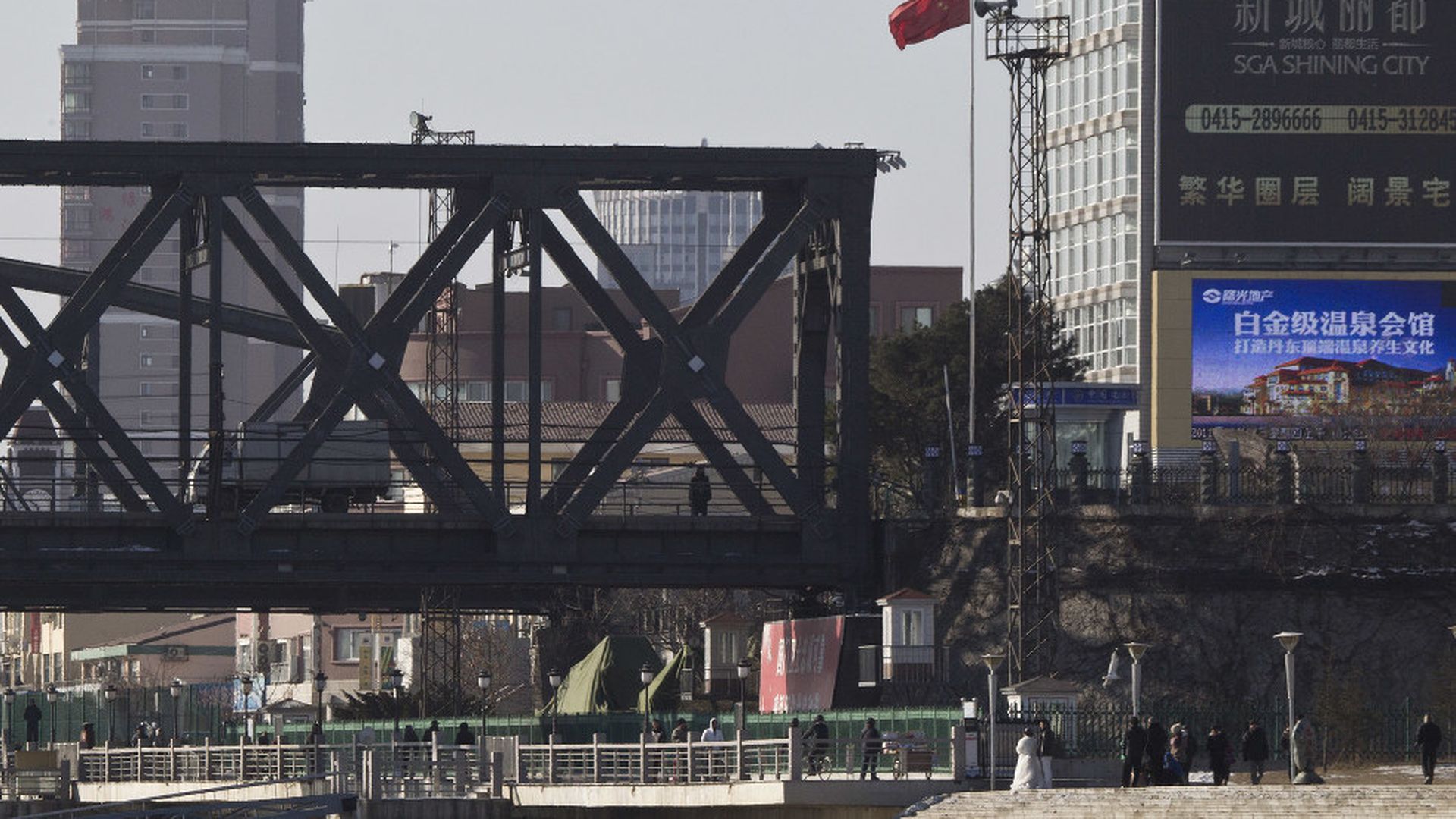Dec 18, 2017 - World
Expert VoicesFear and loathing on China’s border with North Korea
Add Axios as your preferred source to
see more of our stories on Google.

The Friendship Bridge connects Dandong, China, and Sinuiju, North Korea. Photo: Andy Wong / AP
